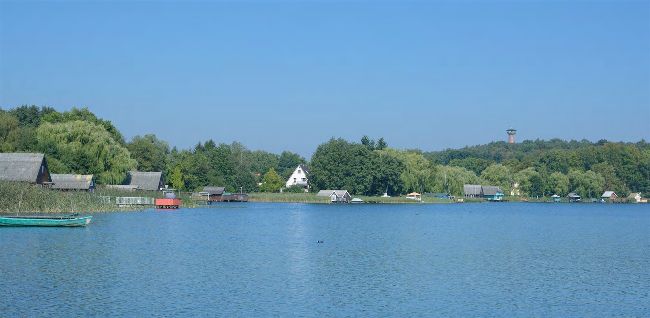‘A future for lagging regions’

Daniel Meltzian
The Territorial Agenda 2030 (TA2030) is an action-oriented policy framework for the spatial development of the European territory. It will be adopted by the responsible ministers on 1 December 2020 during the German Presidency of the Council of the European Union.
There is a focus on pilot actions as a means by which to achieve the objectives and priorities of the TA2030. The pilot actions should support the political anchoring and visibility of the TA2030 and initiate implementation processes in European regions and countries. Topics mentioned in the TA2030 should be better incorporated in spatial planning strategies and sectoral policies at all levels. Examples of implementation should demonstrate the practical relevance of the TA2030 priorities.

To support the objective of a ‘Just Europe’ and the priority of a ‘Balanced Europe’ in the TA2030, the Federal Ministry of the Interior, Building and Community announced that Germany would lead a pilot action in lagging regions. The pilot action, ‘A future for lagging regions’, will start in December 2020 and last until 2023. In this way, one focus of the Federal Ministry's Directorate-General ‘Community’, to create equivalent living conditions in Germany, is linked with the objective of European territorial cohesion and the renewal of the Territorial Agenda.
The pilot action builds on the important role of municipalities and regions in supporting economic development and social wellbeing at a regional level through integrated intermunicipal or supralocal development concepts and regional strategies. The focus of the pilot action, therefore, is on sparsely populated areas with limited access to public services and economic and social opportunities.
The pilot action includes three components.
Implementation
Three German pilot regions, all of which have an integrated supralocal development concept or a regional strategy, will receive funds to implement measures of strategic relevance that aim to ensure the provision of services of general interest and improve quality of life. The measures should have an integrated and future-oriented approach. Results should be transferable to other European regions. In addition to the German regions, three European pilot regions in Austria, France and Portugal will participate at the level of sub-regions.
“The pilot action builds on the important role of municipalities and regions in supporting economic development and social wellbeing at a regional level”
Transfer/ qualification
The pilot regions will share their experiences and provide support and advice to other participating regions and beyond. This active European cooperation will be a central aspect from the beginning. Cooperation will take place through workshops, mutual visits, joint documents, etc.
“Disseminating the regional pilot actions and examples will create more attention for the needs of lagging areas in national and EU programmes and policies
”
Policy level/upscaling
Disseminating the regional pilot actions and examples will create more attention for the needs of lagging areas in national and EU programmes and policies. The important function of hubs as economic, social and cultural centres in lagging rural areas will be highlighted and, through the regional examples, be better incorporated in regional sectoral planning activities and concepts. The participating regions will represent the interests of European regions with regard towide-ranging regional services of general interest and a high quality of life.
Expected results
examples of implementationin participating regions (e.g. smaller investments, campaigns, strategy updates);
better involvementof the key topics of the regional strategies in concrete regional and sectoral planning activities and their implementation concepts;
transfer of resultsand provision of advice by pilot regions to other interested regions;
joint practice paperand publication ‘A future for lagging regions’, with practice-oriented examples of pilot regions and recommendations for action, which should show how spatial strategy measures may be effectively put into practice to shape perspectives for lagging regions on site and how regional strategy measures may be better incorporated in regional and sectoral planning activities and concepts to perpetuate the implementation of spatial strategies.